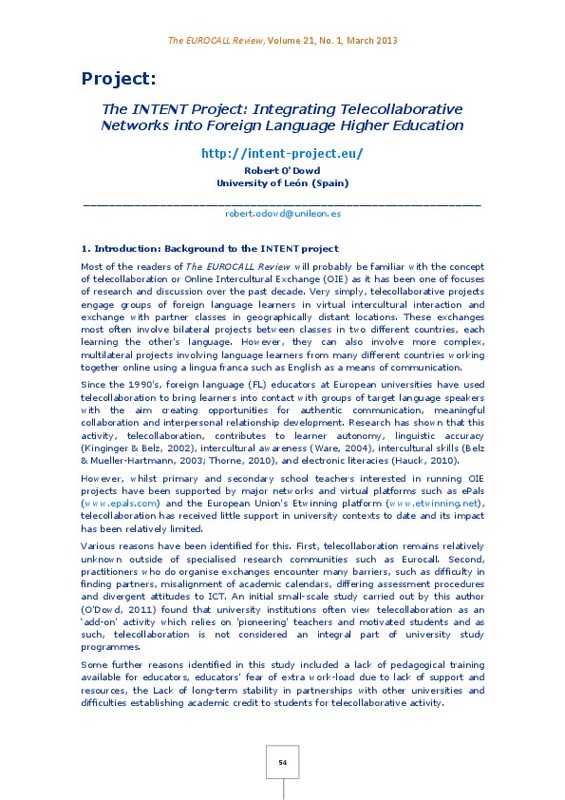JavaScript is disabled for your browser. Some features of this site may not work without it.
Buscar en RiuNet
Listar
Mi cuenta
Estadísticas
Ayuda RiuNet
Admin. UPV
The INTENT Project: Integrating Telecollaborative Networks into Foreign Language Higher Education
Mostrar el registro completo del ítem
O'dowd, R. (2013). The INTENT Project: Integrating Telecollaborative Networks into Foreign Language Higher Education. The EuroCALL Review. 21(1):54-59. https://doi.org/10.4995/eurocall.2013.10162
Por favor, use este identificador para citar o enlazar este ítem: http://hdl.handle.net/10251/138297
Ficheros en el ítem
Metadatos del ítem
| Título: | The INTENT Project: Integrating Telecollaborative Networks into Foreign Language Higher Education | |
| Autor: | O'Dowd, Robert | |
| Fecha difusión: |
|
|
| Resumen: |
|
|
| Palabras clave: |
|
|
| Derechos de uso: | Reconocimiento - No comercial - Sin obra derivada (by-nc-nd) | |
| Fuente: |
|
|
| DOI: |
|
|
| Editorial: |
|
|
| Versión del editor: | https://doi.org/10.4995/eurocall.2013.10162 | |
| Tipo: |
|








